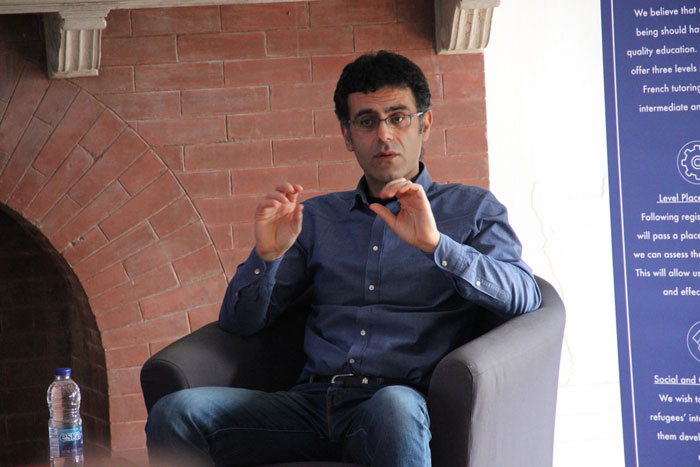On Feb. 5, the HANY Refugee Summit brought together four experts of various professional backgrounds to discuss the modern refugee crisis. McGill professor Arash Abizadeh, Co-director of the National Observatory on Language Rights Frédéric Bérard, Executive Director of Action Réfugiés Montréal Paul Clarke, and Managing Partner at XPND Capital Alexandre Taillefer delivered a series of presentations on the current climate surrounding refugees. Topics of discussion ranged from theoretical analyses to local economic and social aspects of the crisis.
HANY President Florence Chaussé said that the summit was intended to raise awareness about humanitarian crises and the social integration of refugees, in addition to discussing different approaches to immigration policies.
“Having such a diversity of speakers enhanced enlightened discussions with the audience and helped [address] the situation by providing concrete solutions,” Chaussé said.
In the first presentation, Abizadeh and Clarke conducted a joint question and answer session moderated by Chaussé.
Chaussé first asked Abizadeh if a state is obligated to keep its borders open. Abizadeh said that he believes that the fundamentals of unilateral state sovereignty amounts to no such obligation.
“[The] view that is held by most people who are subscribed to the dominant ideology of our era, which is the ideology of state sovereignty, [is that] there is no obligation that the state has […] to open or close [its borders] because it has a unilateral right to make decisions because it is sovereign,” Abizadeh said.
Abizadeh brought up two doctrines that have risen to challenge state sovereignty: The doctrine of human rights and the doctrine of justice. Under these doctrines, Abizadeh stipulated that political power comes with accountability to the people as a matter of inalienable human rights, as well as a duty to serve them.
“[One] way that the ideology of state sovereignty has been challenged […] is that it is not the case that the state is unaccountable, it is accountable to the people over whom it exercises its political power,” Abizadeh said. “[…What] we should notice is, one of the most significant ways that the state exercises political power over people is through the inter-state coercive regime of border control.”
Abizadeh concluded by saying that the notion of border control regimes was democratically illegitimate as such regimes were not accountable to the foreign individuals, in this case refugees, they governed. This prompted the audience to ask Abizadeh to speak on the nature of the recent U.S. executive order on immigration which temporarily banned citizens of several countries from entering the U.S. entirely.
“What is distinctive about the new regime in the United States is that it is explicitly motivated by an ideology that is held by some people that is a far-right, neo-Nazi ideology,” Abizadeh said. “[…It] is important to see that it is a white supremacist, racist ideology.”
Citing a poll conducted online in September 2016 by CBC, Clarke said that a large majority of Canadians believe that refugees should be prioritized only if it contributes to the Canadian economy.
Clarke concluded the first panel with a quote from the previous United Nations High Commissioner for Refugees, Antonio Guterres, the current United Nations Secretary-General.
“[We] can't deter people from fleeing for their lives,” Guterres wrote in TIME in April 2015. “They will come. The choice we have is how well we can manage their arrival and how humanely."







